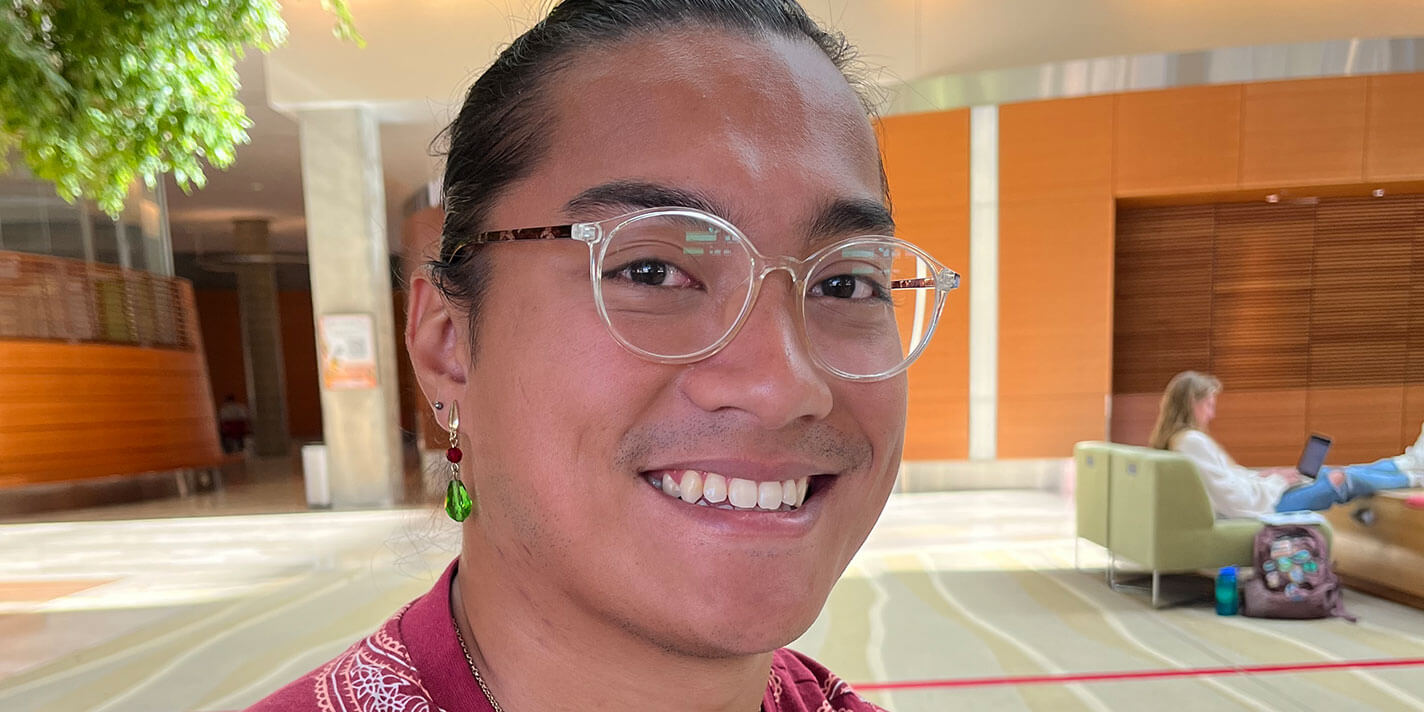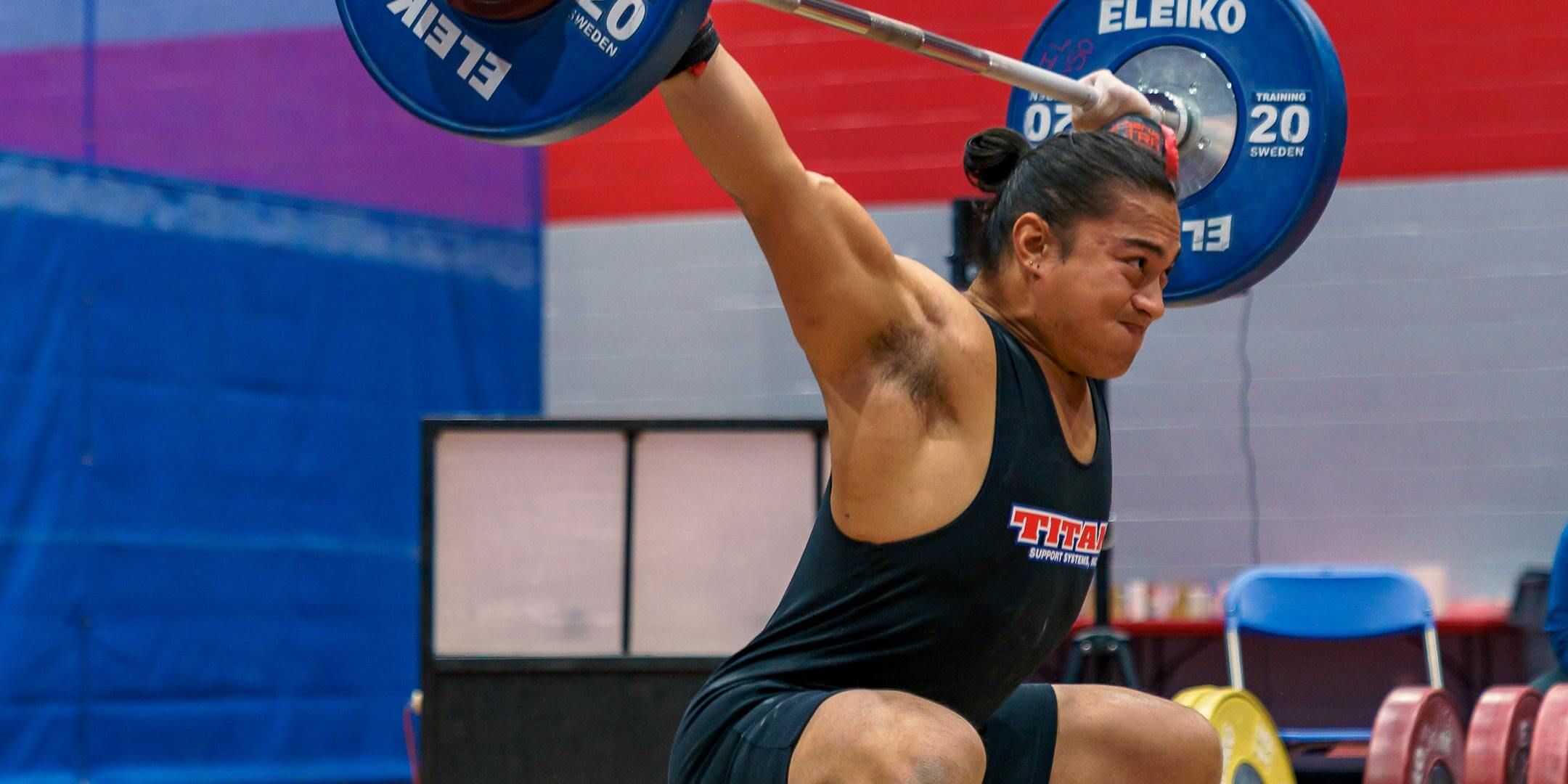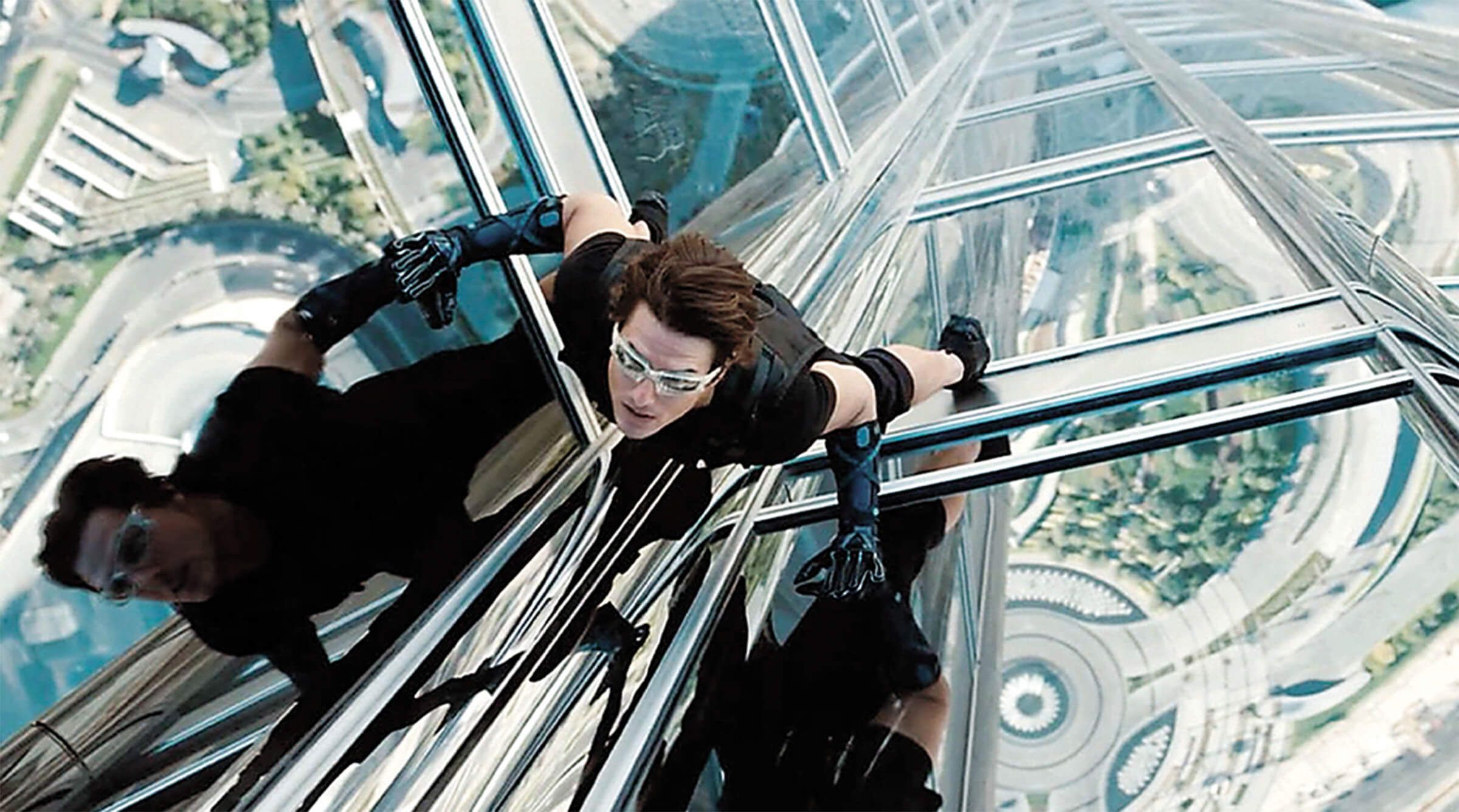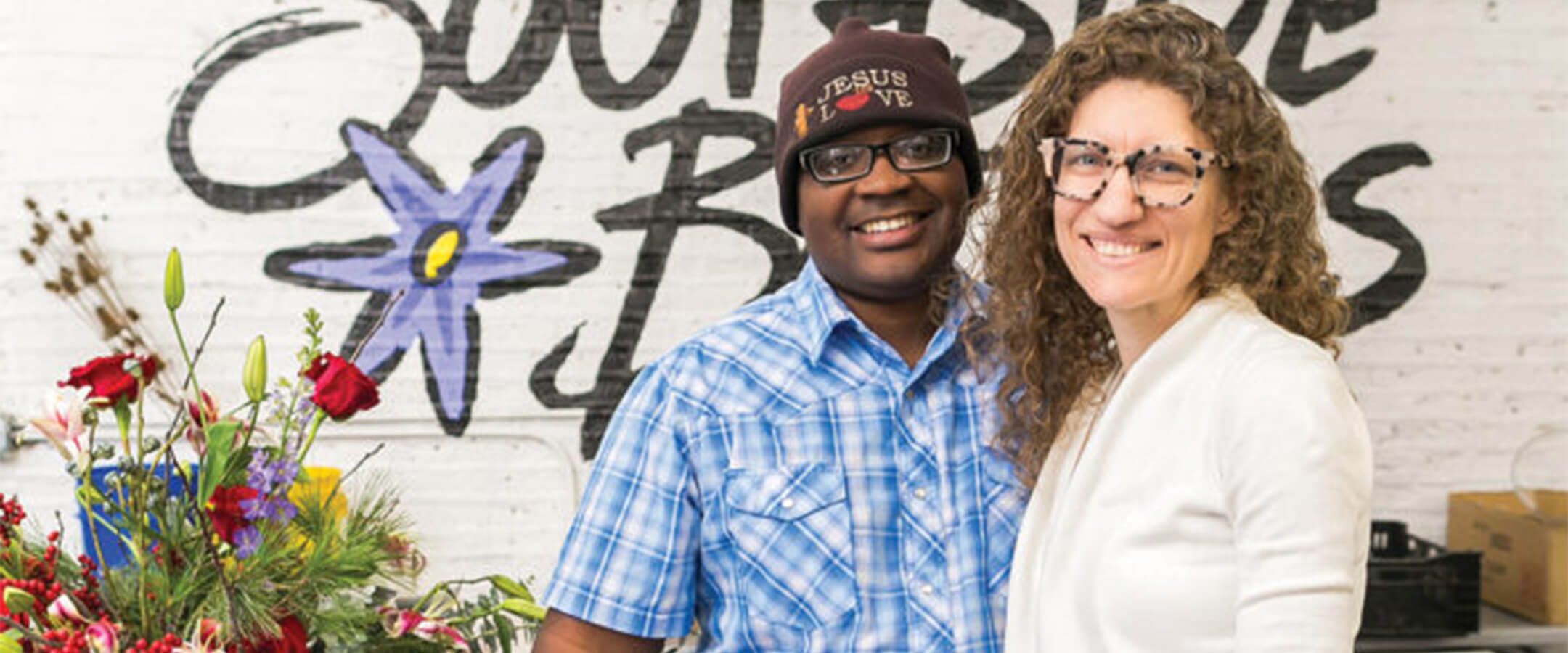As a kid, strongman John Baron took inspiration from comic book superheroes. He grew up in a family that stressed academics over athletics, but the strength exhibited by protagonists like Superman and Spider-Man — plus the draw of his friends — encouraged him to embrace the classroom and the gym equally. After earning a marketing degree and serving as a marketing coordinator with the Wisconsin Foundation and Alumni Association (WFAA) for several years, Baron returned to school to pursue something that would bridge his interests in research and exercise.
A doctoral student in the UW’s Department of Kinesiology, he is studying exercise physiology — the long-term and short-term effects of exercise on the human body. And he has plenty of personal experience with such changes, considering his longtime involvement in athletics and strength training, including swimming, wrestling, powerlifting, weightlifting, and participation in Strongman competitions.
Why did you decide to return to school to pursue kinesiology?
I got [the undergrad in marketing] with the idea that I would start my own fitness-related business someday. Health-and-fitness has always been the long-term career goal. After being here in Madison for a few years and working at WFAA and learning more about the university, this idea formulated. As I learned more about the kinesiology department here, I was like, “Oh. There’s a possibility I could go back for my master’s and pursue that with the idea of getting into hands-on strength-and-conditioning coaching.”
That’s what spurred that idea to go back to school the first time. Then after I got my master’s in 2020, I worked in the private sector for a few years. I realized after working in the practical strength coaching setting that I also was interested in strength-and-conditioning research and exercise research in general. And so that’s what led me to pursue the PhD.
What is exercise physiology?
Exercise physiology is the field [that focuses on] how exercise changes the physiological components of your body, both in the short and the long term. Our lab specifically deals a lot with cerebral blood flow — so how does exercise affect blood flow to the brain? And so that could be either immediately after exercise or maybe looking at people who have a history of exercise versus people who have never exercised, really, and are mostly sedentary. Tracking differences in brain blood flow, things like that. Ex phys asks, “How does the body change over time and in response to exercise?”
How did you first get into strength training?
I was not an athletic kid at all growing up, and sports and fitness were never really a big part of my family. We were more of a traditional, studious, nerdy type of family. So, I’ve always been motivated to do well in school, but I didn’t really have parents who were like, “You need to do sports.” But I just thought it was cool. I remember watching all sorts of sports as a kid and thinking, “That looks really fun. That looks awesome.”
[Getting involved in] strength sports specifically was inspired a lot by fictional characters, honestly. I was stereotypically bullied a little bit growing up as a kid, and I was like, “Man, that’d be great if I wasn’t.” I think that’s the core of things — I just wanted to feel normal in some respect. I thought, “Oh, maybe if I was stronger and lifting stuff, that would help a little bit.” But that never really manifested until I got to college because I didn’t really take training very seriously in high school. It wasn’t until college that I was like, “I can take control of this for myself, and I can start lifting and doing all these things.” And eventually I fell in love with the process itself of getting stronger and healthier, and it became something that I can’t really live without.

What’s your favorite type of strength training?
I do a lot of stuff. I can’t really make up my mind, so I like to tell people I channel my ADHD through all the different strength sports that I do. I have been doing strength sports since 2012, so 10 years at this point. It started when I was in college. I started with powerlifting — squatting, benching, and deadlifting barbells. In 2016, I got into Strongman, which is my favorite sport and what I’ve done the most of, which is just lifting rocks, pulling trucks, odd stuff like that. I also do a little bit of weightlifting, or Olympic-style weightlifting as some people call it, so snatching and clean-and-jerking. And then in 2022, I started doing Scottish Highland Games, which is basically the precursor to track-and-field throws. It’s like Strongman, but instead of lifting rocks, you’re throwing rocks.
What do you personally get out of working out?
I do this stuff because it’s fun. And to a lot of people, it doesn’t seem fun. Picking up a really heavy rock, people think, “Oh, that sounds kind of painful.” Sometimes it is, but there is a genuine dopamine and serotonin rush where I’m just like, “Oh, this is awesome.” This is something I want to keep doing because it’s very satisfying and it makes me feel happy and excited.
Another huge part, which is all over my Instagram, is mental health. So, for me, I have a lot of mental health struggles. They’ve been getting better over the years, but without this regular anchor of exercise and fitness and training for a purpose, I think the symptoms and effects of different mental health things would be a lot worse. Within the past three years, that’s been my number-one motivator. The reason it feels very satisfying is because I’m progressing toward something, but I need that feeling of satisfaction to help combat other things.
You’re a former personal trainer and an expert in exercise science. Do you have any advice for people looking to get started in the gym?
For a lot of people who don’t exercise or who find exercise intimidating, it’s daunting. I think that one of the best things for people to do is find something that they enjoy — because enjoyment is what’s going to sustain a long-term habit. And most people know that exercise has to become a habit in order for it to actually make a meaningful change on your long-term health. But I think it’s mostly getting to the point of building a habit that’s hard — so find something you like to do, whatever you can handle or whatever you are comfortable learning.
You don’t have to learn everything all at once. A lot of those who go to the gyms in January — I’ll often see people try every single thing they see, and then they get really sore and discouraged and don’t want to come back and do it again. You don’t have to do that. Maybe just do a couple things, see what feels good, and then come back the next time and try to do something different. I think the first steps into health and fitness for most people ideally should be very exploratory so they can find what works for them, what feels good, what doesn’t feel good, and what motivates them. From there, you can fine-tune what your goals are long-term, maybe with the help of a coach or a trainer or a friend.





